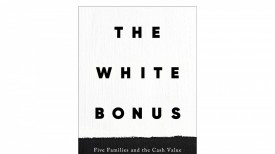'Walking Dead' Season 3: Creator Robert Kirkman Talks Prequel Book to Series 'Road to Woodbury'
The days grow longer and darker, and that isn't just because fall is approaching. AMC's hit horror opus, "The Walking Dead" returns to TV on Oct. 14. And while that's still a few weeks away, this ought to tide you over for the time being: Creator Robert Kirkman will soon release a prequel novel to the series. Out just days after the season three premiere, "The Road to Woodbury" will trace how it all began.
Kirkman began writing a prequel of sorts to the series last year when he released "Rise of the Governor," co-written by Jay Bonansinga. Kirkman wrote the novel to elaborate further on the series' most notorious character "The Governor," which the TV show will soon introduce in season three.
In the story, which will be released in print, digital and audio versions on Oct. 16, a struggling survivor named Lilly Caul (whom the comics also feature) wanders into a walled-in town called Woodbury, Ga. At first, the town seems like the safe haven she's been searching for. The town is run by a mysterious man who keeps everyone in line named Phillip Blake. Blake soon trades his own name for a more powerful moniker, though: The Governor. Tension mounts when Lilly decides she won't be taking any orders from the disturbed man in charge.
Both The Governor and town of Woodbury will play big roles in the upcoming third season of "The Walking Dead," so "The Road to Woodbury" should fit nicely as a companion piece, and flesh out the show's mythology even further for fans.
Entertainment Weekly recently sat down for an interview with Kirkman regarding "The Road to Wodbury." Continue along for insight into new characters, where it all began, and where the show could be headed in the future.
Via Entertainment Weekly:
Could you describe how the collaboration with Jay works?
The easiest way to say it is that I write a skeleton and then he comes in and turns it into a human being. I write a document that's basically, "Here's the characters, here's the journey, here are these events that happen to them." I write a big outline for the novel that lays down the story and then he comes in and miraculously spins it into prose and adds all of the vocabulary that I don't understand and turns it into a well-rounded novel. Then I go in and pick at that a little bit and we're off to the races.
Can you think of a specific word Jay used that made you think, "I have no idea what that means"?
It doesn't happen that often. I'm playing it up for comedic effect. But from time-to-time, when I'm looking at the book, I'll think to myself, "There's a novel with my name on it that's got a word in it that I would never use!"
When you're mapping out one of these "Walking Dead" prequel novels do you ever feel frustrated by some aspect of comic book narrative structure that the eight-years-ago you put in place? Do you ever think, "Oh, I wish I'd made this character a ninja"?
[Laughs] No! If I could go back in time I would bake that fellow a cake. I owe that guy quite a bit. But, no, I really don't have any regrets. I mean, honestly, it would be better if more characters were ninjas, I'm not going to lie to you. But I'm pretty happy with the way things are and I think the book's pretty cool.
I appreciate the Governor is one of the major villains of the "Walking Dead" universe. But there were times while reading "The Road to Woodbury" when I felt kind of sorry for him. Yes, he feeds people's entrails to his pet zombie. But mostly he just wants people to get along!
One of the things that interests me the most about the Walking Dead is that we here in this world read these stories and we go, "Okay, this person's evil, this person is doing bad things, this person is clearly a villain." But when you try to empathize with what these people are living for, what they're going through, and how their world view is changing... look, many of the things that the Governor does are indefensible and basically evil. But, for the most part, the majority of the decisions he's making and the actions he's taking are the kind of things that you would have to do to be a leader in this world. That's a little terrifying and it's supposed to be a little uncomfortable but, you know, there's definitely a lot of grey areas going on in this guy's life.
How much, if at all, did you mentally develop the back story of the Governor when you were originally writing the character for the comic book series?
Well, I don't want to reveal the twist in the first novel - but that is a somewhat new revelation. There were little snippets and little notes that I kept in mind when I was writing the comic book that I am expanding and twisting and turning as we work on this novel series. I'm very meticulous in working with Jay that every single thing which happens in this novel series is completely canon and dovetails into what you already know in the comic books perfectly. But, yeah, there is some actual writing going on! I'm not just going off of notes I wrote 10 years ago.
You're planning to write at least one more novel?
Yeah. I don't want to reveal it, but I'm pretty excited about the third one because the plot's gonna... Ah, I'll go ahead and say it: The second novel progresses the Governor's timeline a lot more and is getting you closer and closer to the events that occurred in the comic book series. And so some of the events in the comic book series are actually going to appear in the third novel. The third novel is going to be a whole new story but you're actually going to get to see Rick Grimes and Michonne and some of the other characters, which you haven't seen in the novel series thus far. So I'm pretty excited about the third novel. But I'm not as excited about that as I am the second novel, which everyone should rush out and buy!
This summer's 100th issue of the Walking Dead comic saw the death of a major, major character. Obviously what happens in the comic book does not necessarily happen in the TV show. But I wondered if the actor who plays that part on the AMC adaptation called you up and was like, "Hey, buddy, what's going on?"
He didn't call me up but I did see him at a few events because the issue came out the week of Comic-Con. So we had some AMC dinners and we were on panels together and did a lot of press and various functions. We ran an obstacle course together! And it was very awkward for me. It's very difficult for me to say this without spoiling who it is but this is the first time I killed a comic character and had to encounter the actor after doing it. So it was a little awkward. I just kind of walked up to him and was like, "So, um... Sorry?"
The really weird thing about it is that it's an extremely gruesome death. So, if I had had any kind of argument with this actor, it would have seemed like I was getting my frustrations out or that I didn't like the guy or something. So it was really funny to me to think about how he would take it and what his reaction would be to it. He just thought it was awesome. So that was a relief.
© 2023 Books & Review All rights reserved.
Popular Now
1
'The Covenant of Water' by Abraham Verghese Book Review: An Enchanting Story of Generational Curses and Medical Marvels

2
'Moederland: Nine Daughters of South Africa' by Cato Pedder Book Review: Unearthing South Africa's Untold Female Histories

3
Keke Palmer Shares Her Journey of Self-Discovery and Growth in Upcoming Book 'Master of Me'

4
'Funny Story' by Emily Henry Book Review: A Heartwarming Tale of Unexpected Connections and Modern Romance

5
6 Earth Day Book Recommendations to Transform Your View of Nature

Latest Stories
Book Reviews
'The Covenant of Water' by Abraham Verghese Book Review: An Enchanting Story of Generational Curses and Medical Marvels

Book News
Keke Palmer Shares Her Journey of Self-Discovery and Growth in Upcoming Book 'Master of Me'

Book News
Penguin Random House Partners with Amazon MGM Studios to Release Lineup of ‘Wednesday’-Inspired Books

Book News
'Funny Story' by Emily Henry Book Review: A Heartwarming Tale of Unexpected Connections and Modern Romance

Book News
Danielle Steel Opens Up About Pre-Publishing Jitters, Discusses New Book ‘Only the Brave’










